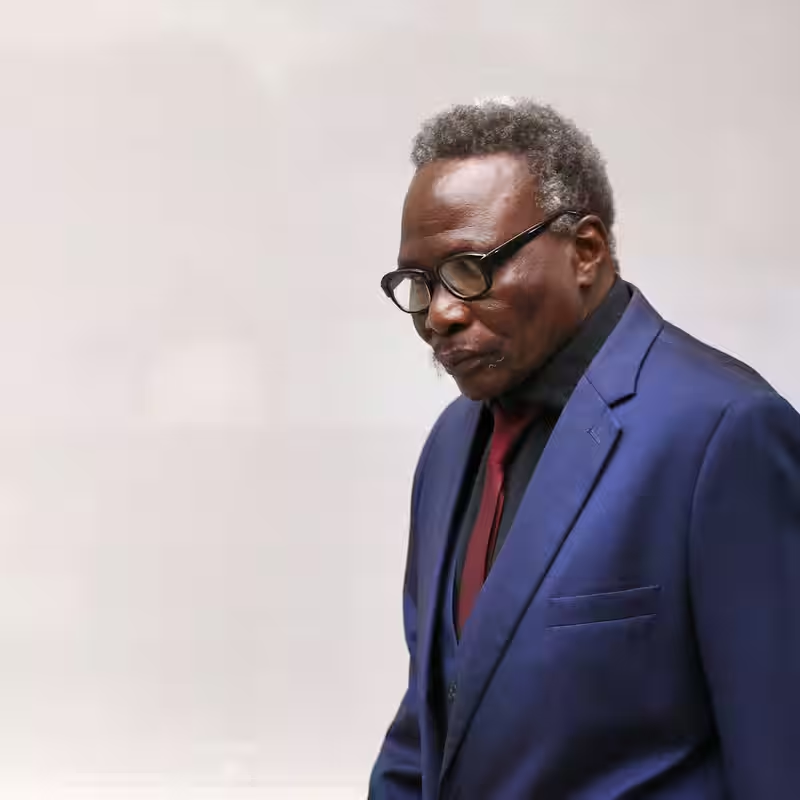Table of Contents
- Historic Verdict After Two Decades of Impunity
- Who Is Ali Kushayb?
- The Darfur Atrocities: A Campaign of Terror
- Why This ICC Conviction Matters
- Unfinished Justice: Where Are the Others?
- Darfur Today: History Repeating Itself?
- Sources
Historic Verdict After Two Decades of Impunity
In a landmark ruling that human rights advocates are calling “long overdue,” the International Criminal Court (ICC) has convicted Ali Muhammad Ali Abd-Al-Rahman—infamously known as Ali Kushayb—for war crimes and crimes against humanity committed in Darfur more than 20 years ago.
The verdict, delivered Monday at The Hague, marks the first time anyone has been held legally accountable by the ICC for the systematic violence that ravaged western Sudan during the early 2000s. For survivors who have waited over two decades for justice, it’s a moment of bittersweet vindication.
Who Is Ali Kushayb?
Once a feared commander of the Janjaweed—a brutal ethnic militia backed by Sudan’s former government—Kushayb was accused of leading scorched-earth raids that wiped out entire villages. Women were raped, children slaughtered, and homes reduced to ash.
Though he surrendered voluntarily to the ICC in 2020, claiming mistaken identity, presiding Judge Joanna Korner dismissed his defense outright. “There is no doubt about who he is,” she stated in court, adding that Kushayb wasn’t just issuing orders—he was personally involved in beatings and executions.
The Darfur Atrocities: A Campaign of Terror
Between 2003 and 2005, Darfur became synonymous with horror. In response to a rebellion against Khartoum’s rule, the Sudanese government armed and unleashed militias like the Janjaweed to crush dissent.
The results were catastrophic:
- An estimated 300,000 people killed
- 3 million displaced from their homes
- Systematic use of sexual violence as a weapon of war
- Entire communities erased from the map
Survivor testimonies presented at trial described villages surrounded at dawn, men lined up and shot, and women dragged into the bush. Kushayb’s forces were at the heart of it all.
Why This ICC Conviction Matters
For the ICC, this conviction is both a triumph and a reckoning. Established in 2002 to prosecute the world’s worst crimes, the court has long faced criticism for its slow pace and limited reach—especially in Africa.
Yet this verdict sends a clear message: even after 20 years, justice can still catch up. “This should serve as a significant milestone in the pursuit of justice for crimes committed in Darfur,” said Tigere Chagutah of Amnesty International.
Unfinished Justice: Where Are the Others?
Despite this breakthrough, many architects of the Darfur genocide remain free. Most notably, former Sudanese president Omar al-Bashir—who was indicted by the ICC in 2009 for genocide—still lives under military protection in Khartoum at age 81.
Other high-ranking officials like ex-defense minister Abdel-Rahim Muhammad Hussein and security chief Ahmed Haroun also evade justice. Their continued freedom underscores a painful truth: accountability at the top remains elusive.
Darfur Today: History Repeating Itself?
Tragically, Darfur is once again a war zone. Since 2023, a brutal civil war between Sudan’s army and the Rapid Support Forces (RSF)—a paramilitary group descended directly from the Janjaweed—has reignited violence in the region.
The RSF is currently laying siege to El Fasher, the last major city in North Darfur not under its control. Humanitarian aid is scarce, famine is spreading, and as many as 400,000 people may have died in the new conflict.
For many Sudanese, the ICC’s verdict is a reminder that without systemic change, history doesn’t just repeat—it echoes.




